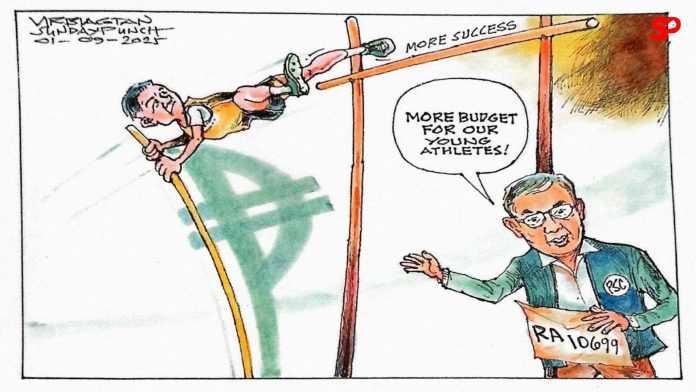Illustration by: Virgilio Biagtan
Republic Act 10699, which grants financial rewards to Filipino athletes who win in international competitions, is a commendable initiative that highlights the value of sports in national pride and development. With incentives reaching PHP 10 million for gold medalists in the Olympics, PHP 5 million for silver medalists, and PHP 2 million for bronze medalists, this law recognizes the hard work and sacrifice of athletes who bring honor to the Philippines. However, these rewards are only one part of the equation. Without sustained investment in grassroots programs, training facilities, and athlete welfare, the country risks relying on individual brilliance rather than systemic excellence.
Despite the recognition RA 10699 offers, many Filipino athletes struggle with inadequate support systems. Stories of athletes training in subpar facilities or relying on personal funds for international competitions highlight the glaring disparity between the promise of rewards and the reality of preparation.
While cash incentives for victories are essential, the government must prioritize investments in infrastructure, scientific training methods, and access to world-class coaches. Without these, the rewards feel like band-aid solutions to deeper systemic issues that hinder the development of a robust sports culture in the Philippines.
If the Philippines wants to consistently compete on the global stage, its commitment to athletes must go beyond celebratory cash prizes. It must include long-term programs that identify and nurture talent from an early age, provide adequate health and financial support, and ensure that athletes have a secure future even after their competitive years. RA 10699 is a step in the right direction, but it should be part of a larger, sustained effort to build a sports ecosystem that not only rewards excellence but also fosters it at every level.
The country owes its athletes not just recognition but the opportunity to succeed on merit, not against the odds.

